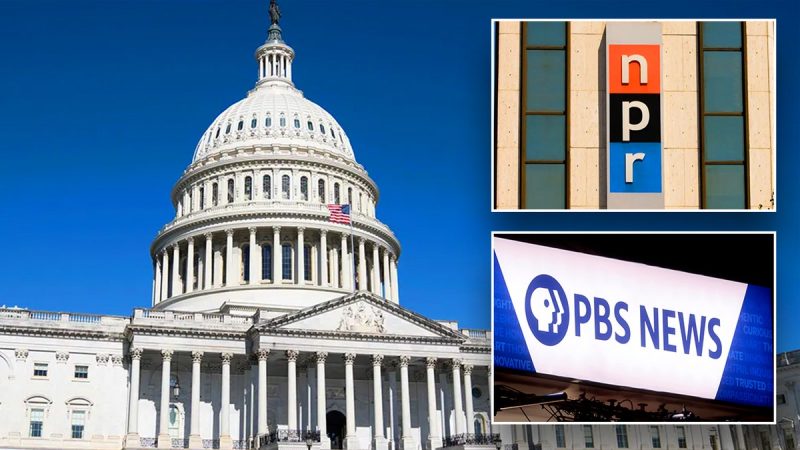In 1967, the Corporation for Public Broadcasting burst into being under the Lyndon Johnson administration with a mission of ensuring ‘universal access to non-commercial, high-quality content and telecommunications services.’
By 1970, both PBS and NPR sprang forth from the CBP, and Americans were treated to the ‘News Hour,’ ‘Sesame Street,’ British comedies and science programming at a time when there were only three networks, cable TV was strictly for the boondocks, and VCRs were science fiction.
A big part of the reason that programming was limited was that production costs for broadcasting were incredibly high. In David Grzybowski’s book, ‘The Big Story,’ he cites Philadelphia news anchor Larry Kane talking about how hard it was during the 1979 Three Mile Island nuclear scare to just get a live TV shot from Harrisburg to Philly:
‘I know we had a live microwave, but the microwaves didn’t go that far. I think we sought some satellite time. I’m not quite sure. The satellite times in those days were $5,000 a minute.’
Five grand a minute! Today, I have done broadcast-quality, live interviews from Harrisburg to New York with my phone. I could do them from Tokyo or Tora Bora, too.
In other words, the core mission of CBP, to ensure universal access to high-quality programming, has been rendered all but irrelevant by technology. The agency is getting $535 million in taxpayer funds in the current budget, yet anyone with a laptop and a Wi-Fi connection can access billions of hours of programming, and even broadcast content themselves.
Much of this online programming is non-commercial. Colleges and universities offer free classes, museums and libraries offer a universe of free archives.
What has clearly happened over the past two decades is that, absent its original mission, public broadcasting found a new one, and this new mission is purely ideological, ludicrously leftist, and has nothing to do with access.
Take this telling statement from NPR’s CEO Katherine Maher, ‘Our reverence for the truth might be a distraction getting in the way of finding common ground and getting things done.’
Getting what done, exactly? It’s a radio station, it’s not a political body. In fact, the original 1967 CBP legislation requires ‘strict adherence to objectivity and balance in all programs or series of programs of a controversial nature.’
Not even the staunchest defender of public broadcasting could suggest with a straight face that objectivity and balance are among its scant qualities these days.
Put simply, public broadcasting is a solution to a problem that doesn’t exist anymore. In 1967, it might have made sense to fund alternatives to the expensive private programming funded by corporate advertising. Today, it makes no sense at all.
There is no reason or excuse for taxpayer dollars to go towards obviously biased news coverage in an age when information is quite literally at everyone’s fingertips.
Make no mistake, I am grateful that when I was 10, I got to see ‘Monty Python,’ ‘Dr. Who,’ Bob Ross, and the ‘McLaughlin Group’ on PBS. But for my son, and millions of Americans today, it doesn’t serve that purpose at all.
One of the hallmarks of President Donald Trump’s frenetic first few weeks in office has been to look at every program, every dollar, and ask if it is being spent wisely in furtherance of America’s goals. Another way of framing that is to ask, is this department or agency fulfilling its mission?
The Corporation for Public Broadcasting has not been fulfilling its mission for decades now. In fact, it is often in rank violation of it, especially with its one-sided coverage of social and political issues.
As former NPR editor Uri Berliner, now with the Free Press, has outlined, the bias was unmistakable. In the Hunter Biden laptop story he wrote:
‘The laptop was newsworthy. But the timeless journalistic instinct of following a hot story lead was being squelched. During a meeting with colleagues, I listened as one of NPR’s best and most fair-minded journalists said it was good we weren’t following the laptop story because it could help Trump.’
That is really all you need to know. There is no reason or excuse for taxpayer dollars to go towards obviously biased news coverage in an age when information is quite literally at everyone’s fingertips.
There have been calls to reform PBS and NPR. Not even cheeky suggestions like a show for Steve Bannon to balance things out.
But as hilarious as the facial expressions would be on the Vermont couple in the Subaru with the ‘Coexist’ bumper sticker when Bannon’s voice came out of the speakers, there is no reform that can fix a government project that simply has no reason to exist anymore.
Thanks for the memories, public broadcasting, but it’s best that we all just move on.

